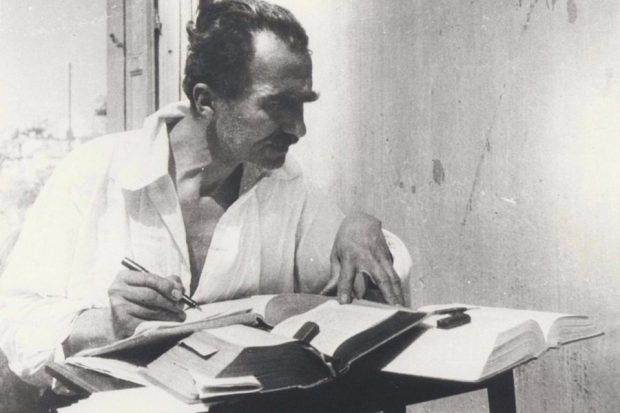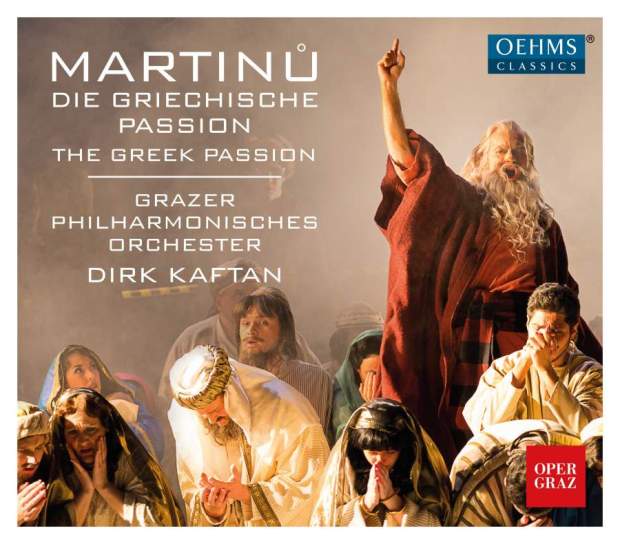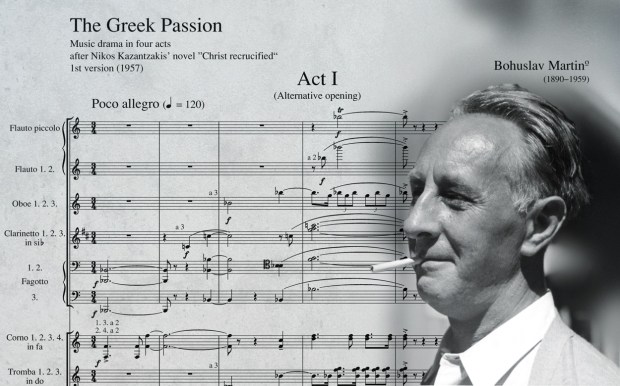Once, years ago I begged the gods (and the staff of DNO) to put by Bohuslav Martinů’s The Greek Passion on the repertoire list. In vain. It doesn’t even have to be a new production, on the contrary! There is a beautiful staging made by David Pountney. It was first performed in 1999 in Bregenz (this was the first version of the opera), and a few years later at the Royal Opera House in London.
I saw the production in London and was very moved by it. In the performance I attended, the main parts were played by Christopher Ventris as Manolios (Christ) and Douglas Nasrawi as Panait (Judas), and since then I have hoped that one day a DVD will be released. In vain, so it seems …
‘Christ was crucified again’

Nikos Kazantzakis © Universal Edition Magazine
The subject: refugees, corruption, religious fanaticism, humanism and the search for identification was, is and will always remain topical. Bitter, tragic, but also beautiful and very humane. Martinů himself wrote the libretto for it, based on the novel ‘Ο Χριστός ξανασταυρώνεται’ (Christ was crucified again) by Nikos Kazantzakis. The book (and the opera) tells a story of the survivors of a Turkish massacre who seek shelter in a Greek village where the local population is preparing for their annual ‘Passion performances’.
FILM

There are two versions of the opera. The original version was rejected by the then management of the Royal Opera House in 1957. The score, which was drastically adapted by Martinů, was not performed until 1961 in Zurich, after the composer’s death. This ‘revision’ was recorded by Supraphon in 1981 and filmed for television in 1999 (Supraphon SU 7014-9).
For the time being, we should be satisfied with that, at least as far as the image is concerned. Not that it’s bad, on the contrary, because there’s a lot to enjoy, but it’s a film and the roles are played by professional actors who really do their best to make us believe that they’re singing too.
The film is strongly reminiscent of Zeffirelli. If you have seen his Cavalleria Rusticana, you know what I mean. There are beautiful images of the arid landscape and the heat and drought are almost palpable.
The soundtrack comes from the recording by the Brno Philharmonic Orchestra conducted by Charles Mackerras (need I say more?) with a cast including John Tomlinson as the priest Grigoris, John Mitchinson as Manolios, Helen Field as Katerina and the soloists of the Welsh National Opera.
CD








